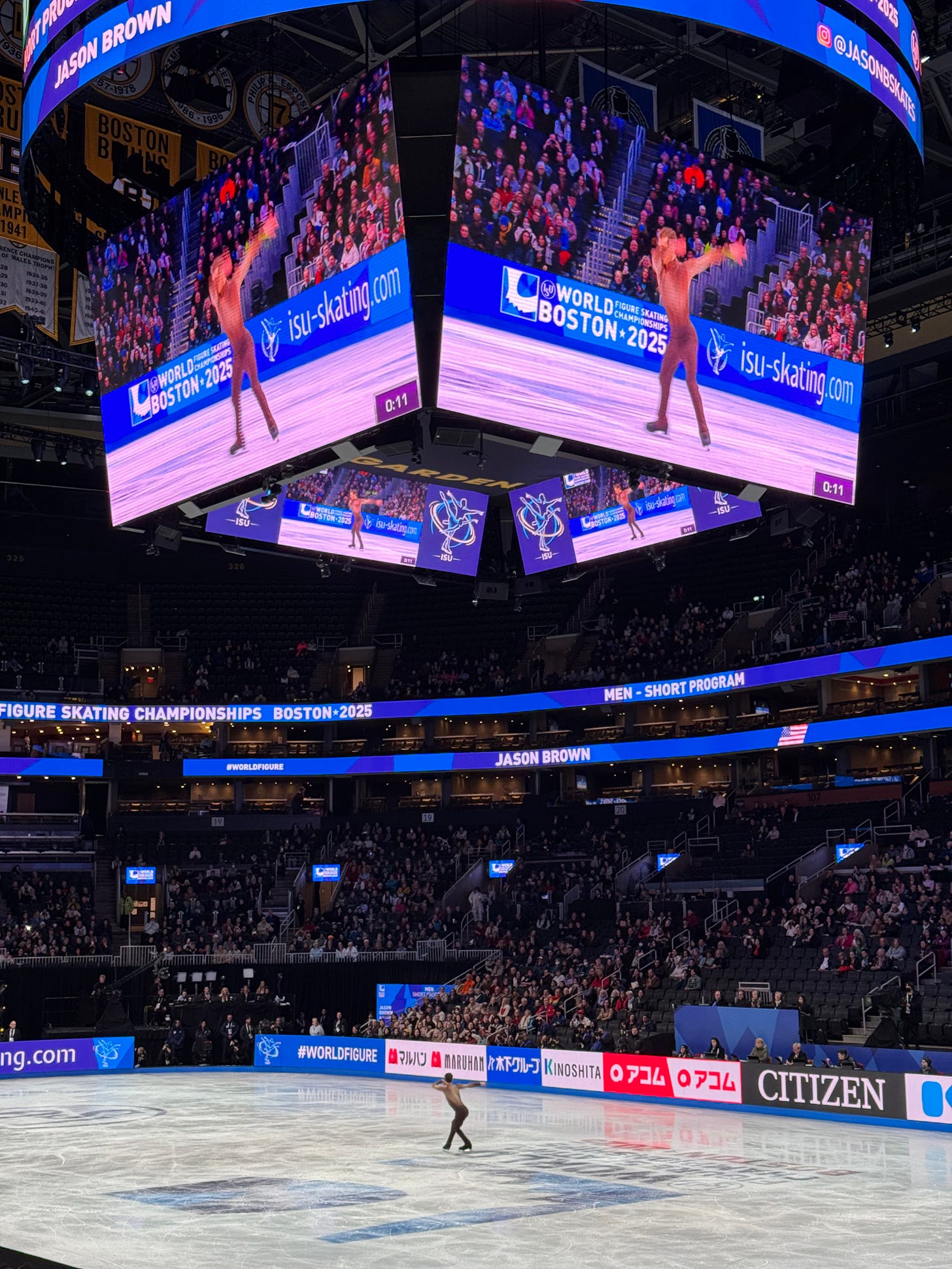Big Essay: Boston Is Where You're From or Where You're Going
On the 2025 World Figure Skating Championships...
The 2025 World Figure Skating Championships in Boston are a big event. A people-come-from-all-over-the-world event, and it feels especially important in the lead-up to an Olympic year. This is the last World Championships to be held before the Milano-Cortina Olympics, which …



